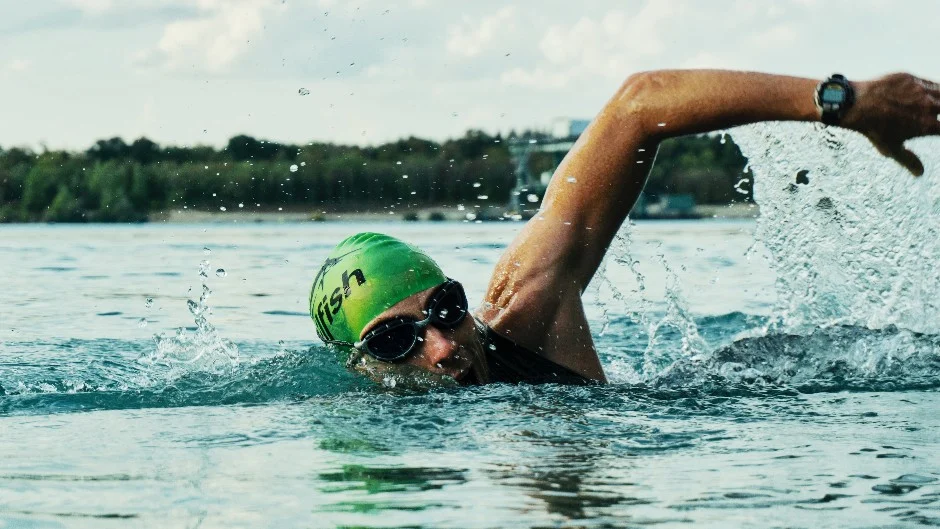Open Water Swimming Tips for Beginners

Warmer weather means many athletes are taking their swim training to open water. Mastering open water swimming takes practice and additional planning. In a pool, you have clear water and black lines to follow, consistent water temperature, and lifeguards in case of trouble. In open water, you must account for water that can vary in temperature, water clarity, tides or currents, and safety. Asphalt Green Unified Aquatics (AGUA) coach John Fedena shares tips for beginners to navigate open water.
Know the water conditions. Before you swim in open water, assess the conditions. Map out your swim area using landmarks or buoys, and make sure the area is approved for swimming and has favorable wind and visibility. If you’re a beginner, start with shorter distances. Enter and exit in areas where you know the bottom terrain, and take your time before jumping in. It’s always best to err on the side of caution.
Wear appropriate gear. Wetsuits are recommended if the water temperature is below 65 degrees, but many athletes prefer to swim with them up to 85 degrees. Goggles should be comfortable and allow for you to see clearly. On sunny days, tinted goggles are recommended to reduce glare.
Bring a buddy. Never swim alone in open water. Swimming with another person provides support in case of an emergency and makes you more visible. Plus, the extra motivation will give you a better workout.
Sight. Sight every three to five strokes to make sure you are swimming in a straight line. As you improve, sighting will be required less frequently. To sight properly, use fixed objects on land or anchored buoys in the water as checkpoints. The taller or larger the object, the better. If you’re doing the breaststroke, sight by lifting your body higher out of the water during your breath to spot your marker. If you’re swimming freestyle, sight by looking straight ahead on a stroke you would typically take a side breath.
Maintain your stroke. The same stroke mechanics you apply in the pool are used in open water. Your stroke only varies when you sight.
Relax. Swimming in open water is different than swimming in a pool, and it takes some time to adjust to the new conditions. If you are feeling overwhelmed, focus on your breathing pattern and stick to your open water plan.


